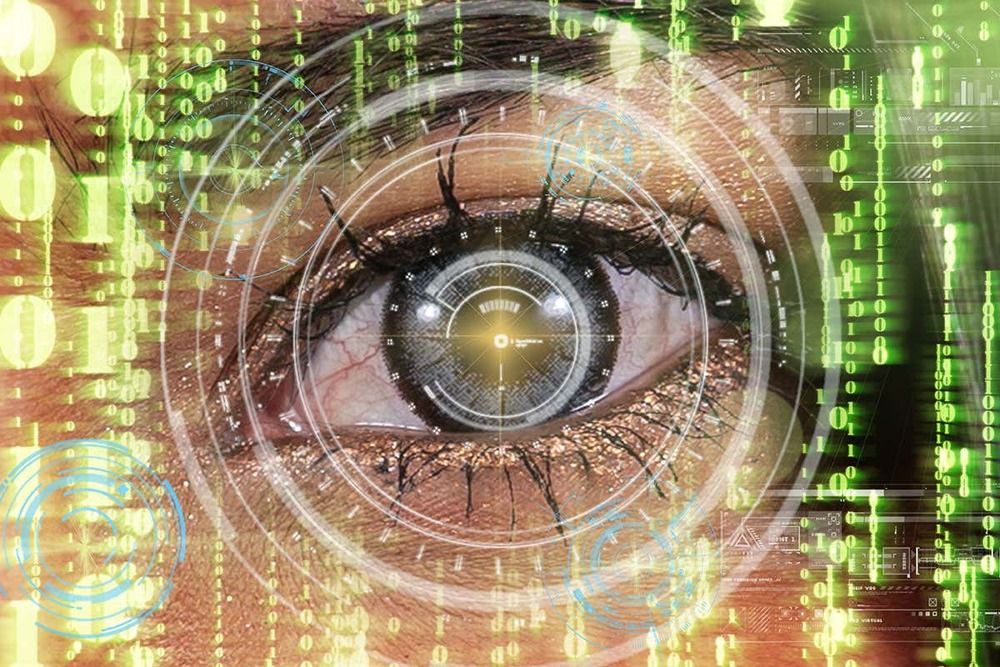With these, you don’t have to keep buying new clothes as the child grows.
These futuristic threads scream baby couture, but they actually keep money in the bank instead of breaking it!


Would you be okay to have these injected in you?
Engineers at Cornell University developed a microscopic robot – so small it’s invisible to the naked eye – that walks. It’s so tiny that ten could fit within a period. The team says they can manufacture one million of the robots per week.
The new robot is essentially a microchip on four origami-inspired legs that can be activated by lasers. It was designed to crawl inside the human body, find and eliminate diseases. It can be steered by beaming a laser at its feet, which causes their leg to bend.
Itai Cohen and Paul McEuen Labs, leaders of this invention, envisions them as a beneficial medical tool to do things like hunt down and destroy cancer cells. The micro-bots are so small they can be injected into the body.
Spent rockets are dangerous space trash, but they could be the future of living and working in orbit.

Your weekly selection of awesome robot videos.
It’s easy to forget that Kawasaki is much more than a motorcycle company. While its famously crazy motorcycles are certainly the most visible part of the brand outside Japan, Kawasaki Heavy Industries is a 124-year-old industrial colossus that brought in US$15 billion in revenues last year. Only $3.2 billion of that came from the motorcycle and engine division – a further $2.5 billion came in from energy systems and plant engineering, and $2.2 billion from precision machines and robotics.
The largest segment of the Kawasaki empire, contributing $4.6 billion, is its aerospace systems division. Kawasaki makes a small range of military and civilian helicopters, as well as large turbofan engines for various Airbus and Boeing airliners.
So this new K-Racer design is well within the company’s wheelhouse. The K-Racer is an unmanned compound helicopter – compound referring to the fact that it uses multiple propulsion systems. Its 4-m (13.1-ft) top rotor looks much like the one on any large helicopter, and it’s clearly capable of modifying the angle of its blades as they rotate around the central shaft to give it omnidirectional tilt and movement capabilities.

The African continent is slowly separating into several large and small tectonic blocks along the diverging East African Rift System, continuing to Madagascar—the long island just off the coast of Southeast Africa—that itself will also break apart into smaller islands.
These developments will redefine Africa and the Indian Ocean. The finding comes in a new study by D. Sarah Stamps of the Department of Geosciences for the journal Geology. The breakup is a continuation of the shattering of the supercontinent Pangea some 200 million years ago.
Rest assured, though, this isn’t happening anytime soon.

Circa 2019
A full-scale mock-up of the Jetcopter vertical-takeoff-and-landing concept vehicle will be shown for the first time at April’s AERO 2019 show in Friedrichshafen, Germany.
The startup air taxi’s claim to fame is its powerplant: Dual 500 hp, 6,000 rpm motors — converted from automotive applications — push two 200 cm air turbines. The resulting 600 mph airflow velocity powers the Jetcopter to a claimed top speed of close to 200 mph with a 620-plus-mile range.
The Jetcopter is unusual in that it does not have large rotor blades, like a helicopter, fixed wings, or tiltable turbines distributed to the ends of shafts like other air taxis. Instead, its two turbines are fixed above the cabin and it is engineered to divert the airflow to four endpoints, where the air can be vectored in a chosen direction, helping to direct the aircraft, a la the Harrier Jump Jet.